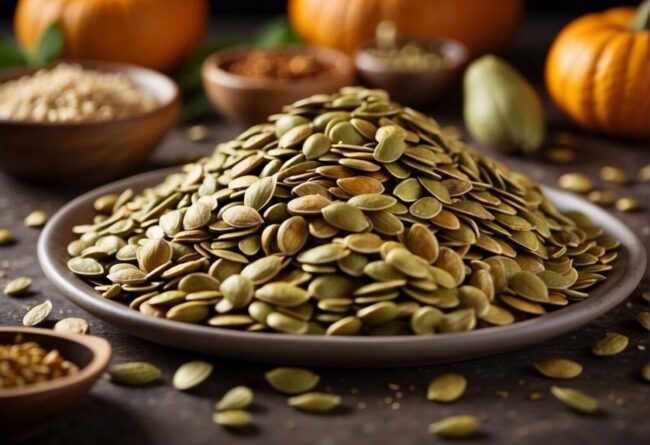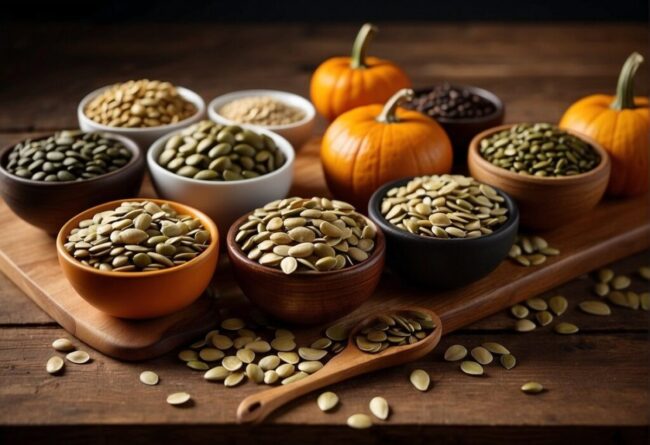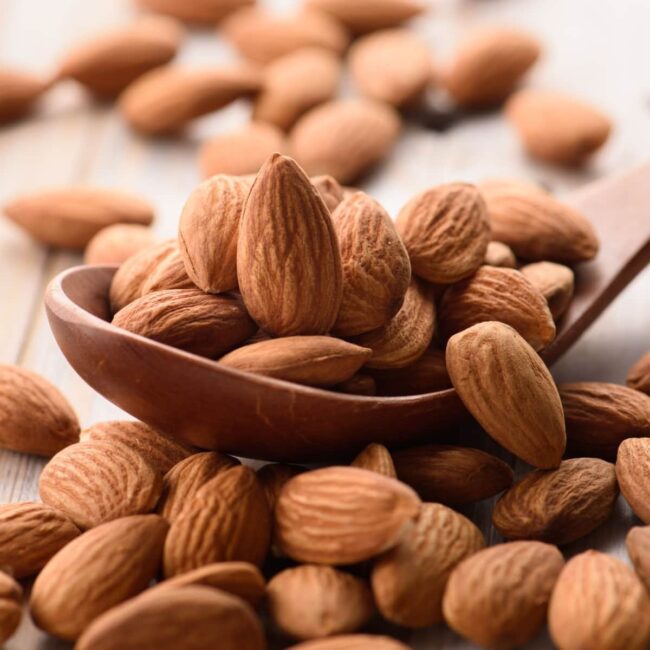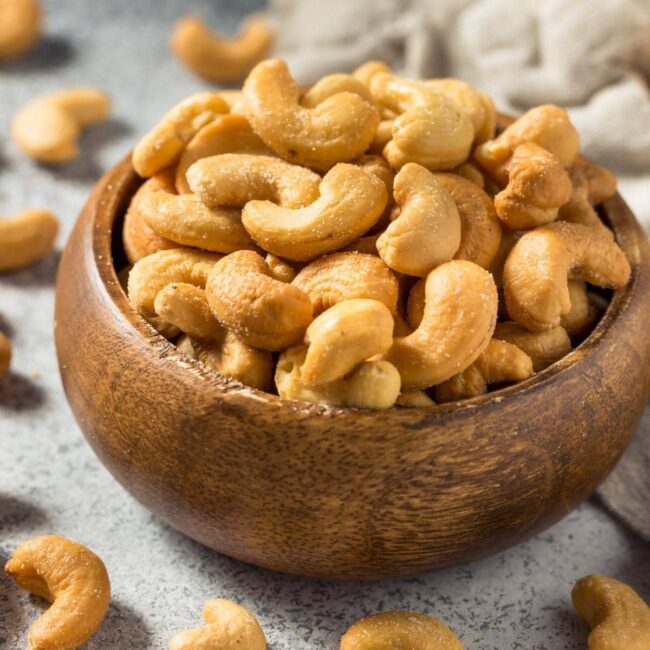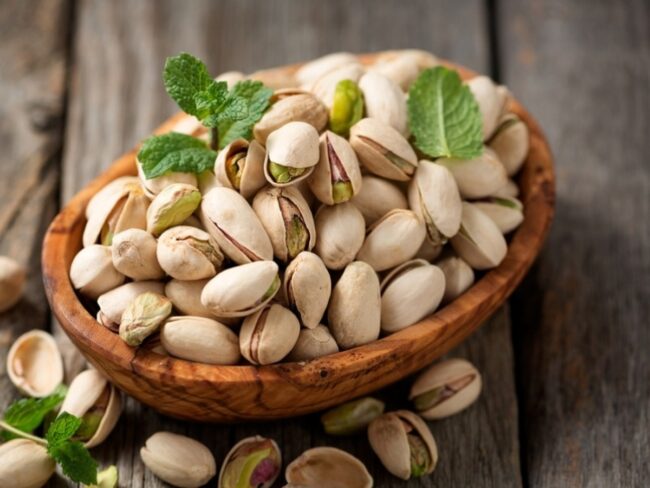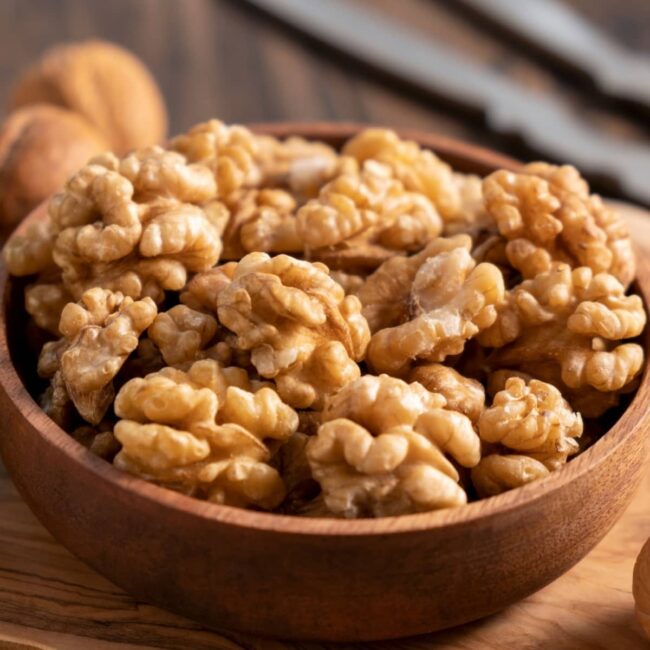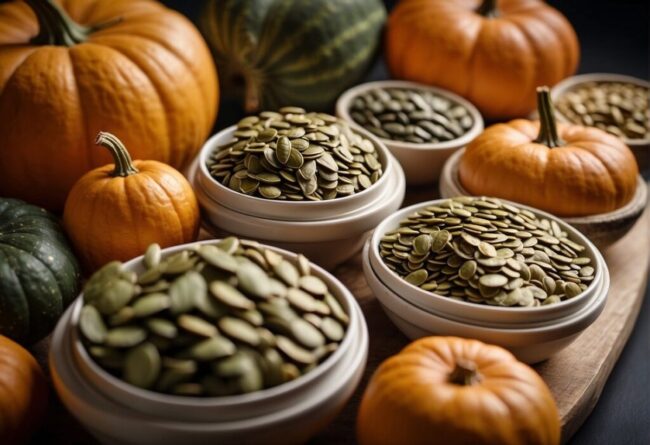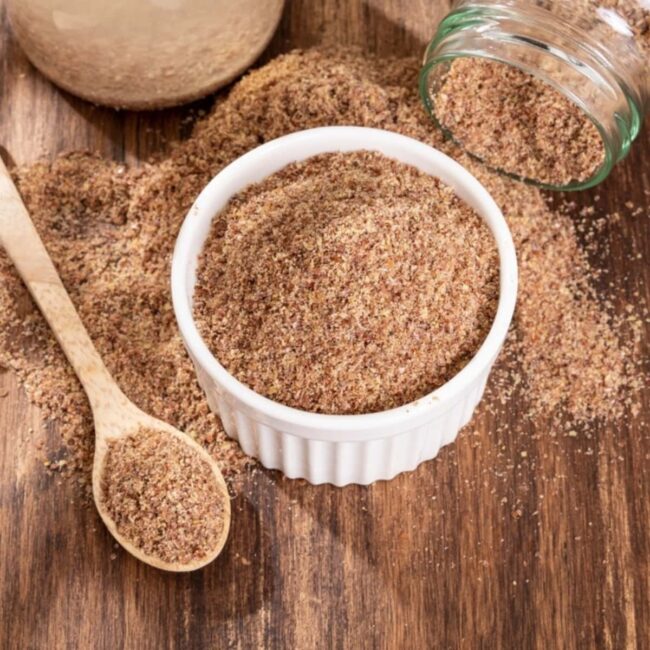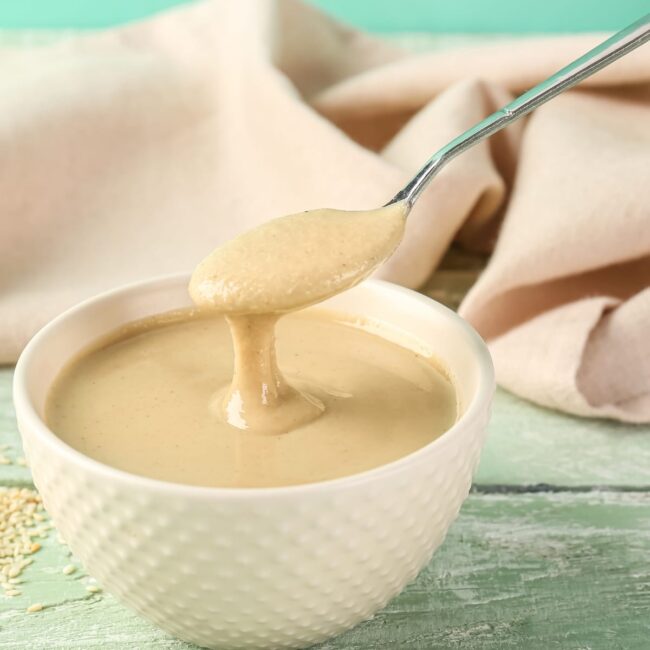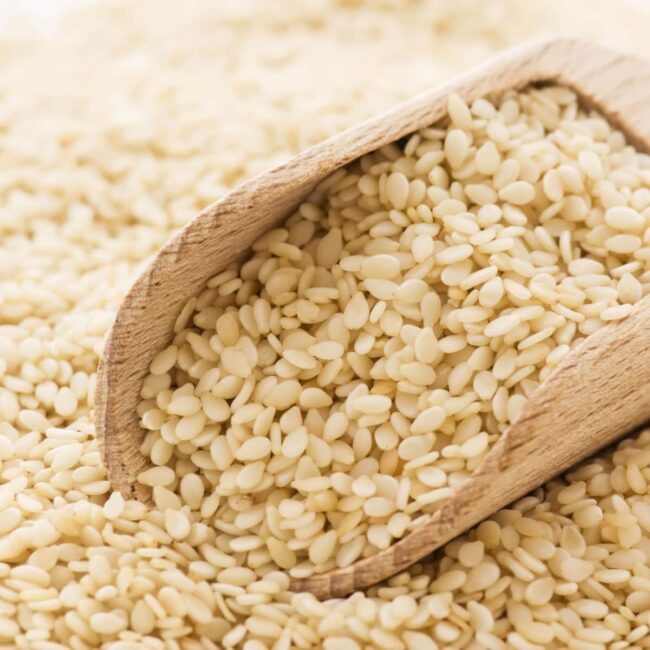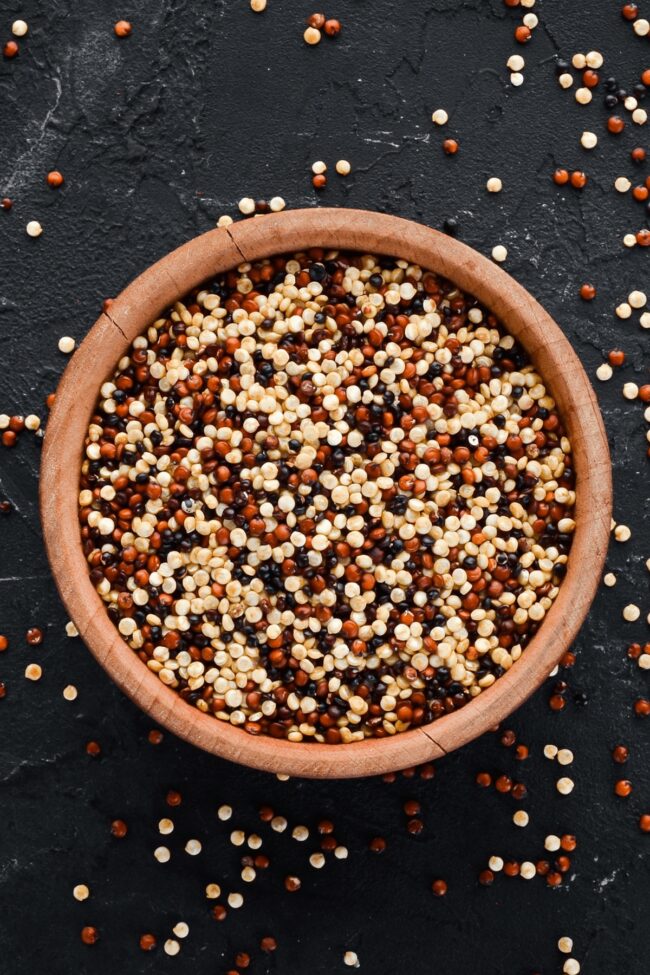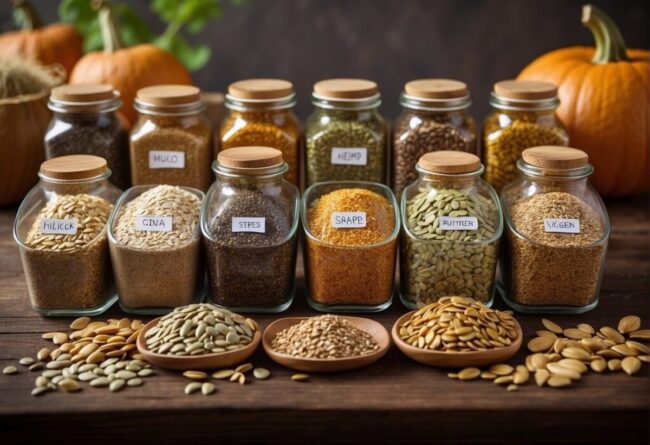13 Smart Swaps for Pumpkin Seeds in Recipes
Pumpkin seed substitutes bring crunch and nutrition to snacks and meals without changing the overall texture.
Certain options deliver a similar nutty bite, while others introduce a mild, wholesome element.
Salads, granola, or baked goods still maintain their structure with the right choice.
Picking an alternative that blends smoothly ensures flavors remain balanced.
What to Know About Pumpkin Seeds
Pumpkin seeds are nutrient-dense snacks rich in healthy fats, protein, and minerals. They are commonly eaten raw, roasted, or blended into recipes.
Food Nutrition Facts
Pumpkin seeds shine as a nutritional treasure, packed with essential components that support your well-being.
Protein content stands out, delivering about 7 grams in just one ounce.
High fiber levels contribute significantly to digestive health and help maintain steady energy throughout the day.
A variety of vitamins like E and K enhance overall health, while magnesium plays a vital role in both muscle function and bone strength.
Rich in iron for blood vitality and zinc for immune support, these little seeds also provide antioxidants that combat cell damage effectively.
Cooking Uses
Pumpkin seeds offer a delightful range of culinary uses.
Roasting them brings out their rich flavor, perfect for snacking or adding texture to meals.
These seeds complement both sweet treats and savory dishes, enhancing every bite with a gentle nuttiness.
Harvest season highlights their prominence in recipes that celebrate fall flavors.
Think about tossing them into salads or sprinkling on baked goods for an extra crunch; creativity knows no bounds with these tiny powerhouses!
Importance of Seasons
Autumn brings with it the vibrant hues of falling leaves and the cherished harvest of pumpkin seeds.
These tiny treasures are celebrated during various cultural festivals, often spotlighting their rich flavors in seasonal dishes.
Packed with nutrients, pumpkin seeds support your health while adding a delightful crunch to snacks and meals alike.
The aroma of roasted seeds fills the air, inviting you to indulge in their earthy goodness.
This season invites exploration; why not try incorporating them into your favorite recipes?
Pumpkin Seed Replacement Options
Popular pumpkin seed substitutes offer crunch and nutrition for snacks and recipes. They provide a great alternative in different culinary uses.
Sunflower Seeds
Sunflower seeds add a delightful crunch and subtle flavor to many dishes.
Their versatility shines through when used in salads, trail mixes, or as toppings for bread.
Colorful varieties are available, from striped shells to the elegant sunflower hearts that pack a nutritious punch.
Packed with vitamin E, magnesium, and selenium, these tiny seeds contribute not just taste but also health benefits.
Consider incorporating them into your meals for an easy boost of nutrition and texture that enhances every bite you take.
Chia Seeds
Chia seeds offer a wealth of nutrition in a tiny package, making them an excellent addition to various meals.
These little gems come in different colors, ranging from white to deep black, adding visual interest.
Their flavor is mild, allowing them to blend seamlessly into both sweet and savory dishes without overpowering other ingredients.
With impressive levels of omega-3 fatty acids and fiber, they contribute significantly to overall health.
Perfect for thickening puddings or enhancing smoothies with added texture, these seeds can elevate your culinary creations effortlessly.
Hemp Seeds
Hemp seeds offer a distinct earthy flavor that elevates various dishes.
Their soft green hue hints at the rich chlorophyll packed within, adding a lively aspect to your plate.
With an impressive nutrient profile, these seeds provide high-quality protein and essential omega-3 and -6 fatty acids.
Consider blending them into smoothies for added creaminess or sprinkling over salads to enhance texture and taste.
Exploring hemp as an alternative can keep your meals nutritious while introducing delightful new flavors that surprise the palate.
Nut-Based Swap Options
Nut-based alternatives provide rich and nutty flavors in recipes. They add depth and texture to both sweet and savory dishes.
Almonds
Almonds shine as a nutritious alternative in various dishes.
With approximately 6 grams of protein per ounce, they support energy and muscle health.
Rich in Vitamin E and magnesium, these nuts contribute to overall wellness.
Swapping pumpkin seeds for almonds introduces a delightful sweetness and satisfying crunch to your favorite recipes.
Experimenting with this substitution can elevate both flavor and nutrition effortlessly.
Cashews
Cashews add a delightful creaminess that enhances various recipes.
Their subtle taste complements both savory and sweet dishes, offering versatility in the kitchen.
With 5g of protein per ounce, these nuts contribute to a nutritious diet while providing essential minerals like iron and magnesium.
Ideal for vegan baking, they create luxurious textures in sauces and desserts alike.
Discovering new ways to use cashews can elevate your cooking experience significantly.
Pine Nuts
Pine nuts pack a powerful punch in nutrition despite their size.
With approximately 4g of protein per ounce, they contribute essential minerals like iron and magnesium to your meals.
Toasting these tiny gems intensifies their rich, buttery taste, elevating any dish they touch.
Adding them to pesto or salads introduces a delightful crunch that can transform the overall texture.
Consider using pine nuts as an elegant garnish for soups or roasted vegetables; the result is simply exquisite!
Walnuts
Walnuts stand out with their rich, earthy flavor that elevates any dish.
Packed with omega-3 fatty acids, they contribute to heart health and brain function.
A single ounce delivers around 4g of protein, making them a smart choice for those seeking nutritious snacks.
Manganese and Vitamin B6 add to their health benefits, supporting metabolism and energy production.
These versatile nuts shine in both sweet treats and savory salads, adding a delightful crunch you can't resist.
Unique Substitutes and Their Uses
Unique substitutes and their uses provide exciting alternatives to everyday ingredients. They add a creative twist to recipes.
Mashed Sweet Potatoes
Sweet potato puree transforms ordinary recipes into something special.
This ingredient enhances desserts with its natural sweetness and silky texture, providing a delightful twist to traditional favorites.
When incorporated into soups, it delivers a heartiness that elevates the dish while maintaining a comforting flavor profile.
Using sweet potato puree in pasta sauces creates an inviting creaminess that pairs beautifully with spices and herbs.
You might find yourself experimenting with this ingredient in ways you never thought possible, discovering new flavors along the way.
Butternut Squash Seeds
Roasted butternut squash seeds offer a satisfying crunch and a burst of nutrition.
Their naturally sweet flavor enhances both savory soups and pasta dishes, bringing an unexpected twist.
Topping your meals with these seeds introduces an appealing texture that elevates every bite.
With their versatility, they can even find a home in baked goods or salads, adding depth to your culinary creations.
Consider sprinkling some on your favorite recipes for that extra touch of flavor and fun!
Seed and Grain Replacement Options
Seed and grain substitutes offer a nutritious replacement for various ingredients. They work well in different culinary applications.
Flaxseeds
Flaxseeds offer an incredible nutrient boost with their impressive fiber and omega-6 fatty acids.
These tiny powerhouses can enhance both flavor and texture in your meals, lending an earthy note that complements a variety of dishes.
Ground flaxseeds blend seamlessly into baked goods, adding moisture and nutritional value without altering taste significantly.
Whole seeds provide a satisfying crunch when sprinkled on salads or yogurt, making them versatile for any meal.
Incorporating flaxseeds into your diet not only supports digestive health but also introduces beneficial minerals like phosphorus to your plate.
Tahini
Tahini provides a creamy consistency and a delightful nutty taste that enhances various dishes.
This paste, crafted from ground sesame seeds, serves as an excellent source of amino acids.
Versatile in the kitchen, it can transform dressings and thicken sauces with ease.
Its unique flavor profile complements both savory and sweet recipes beautifully.
Whether drizzled over salads or blended into dips, tahini brings an exciting twist to your culinary creations.
Sesame Seeds
Sesame seeds pack a punch with their rich flavor and impressive nutrient content.
These tiny gems shine in the kitchen, adding a delightful crunch to salads and bread.
Rich in calcium, magnesium, and zinc, they contribute significantly to your daily nutrient intake.
Toss them into dressings or sprinkle on dishes for an added layer of taste and texture.
Incorporating sesame seeds into meals is an effortless way to boost both nutrition and flavor without overwhelming other ingredients.
Quinoa
Quinoa stands out as a versatile option in the kitchen, perfect for those seeking gluten-free alternatives.
Its fluffy texture and mild flavor complement various dishes, from salads to hearty bowls.
Packed with fiber and phosphorus, quinoa supports digestive health while providing essential nutrients.
As a complete protein, it meets dietary needs by offering all nine amino acids your body craves.
Puffed quinoa adds an exciting crunch to snacks or breakfast options, try it sprinkled over yogurt or mixed into trail mixes for an added twist!
Health Concerns and Dietary Considerations
Some dietary considerations for pumpkin seeds include allergies, calorie content, and preparation methods. They provide numerous health benefits when consumed in moderation.
Allergies and Food Issues
Navigating food allergies can be challenging, especially when it comes to finding suitable substitutes.
Sunflower seeds serve as a fantastic option for those who need to avoid nuts, providing crunch and flavor without the risk.
Chia seeds not only remain nut-free but also pack a nutritional punch with their omega-3 fatty acids that support heart health.
For those dealing with intolerances, hemp seeds stand out as an excellent choice; they combine essential fatty acids that promote overall wellness and immune function.
Exploring these alternatives opens up new culinary avenues while ensuring safety and satisfaction at mealtime.
Heart Health and Blood Pressure
Seeds can play a crucial role in promoting overall health, especially for the heart.
Flaxseeds stand out due to their rich content of alpha-linolenic acid, a plant-based omega-3 fatty acid that supports healthy cholesterol levels.
Including these tiny powerhouses in your diet may lead to significant cardiovascular benefits.
Sesame seeds also contribute positively by providing magnesium, an essential mineral known for its ability to help regulate blood pressure effectively.
Incorporating both types of seeds into meals could lead you on a path toward better heart health and balanced blood pressure levels while adding texture and flavor to your dishes.

